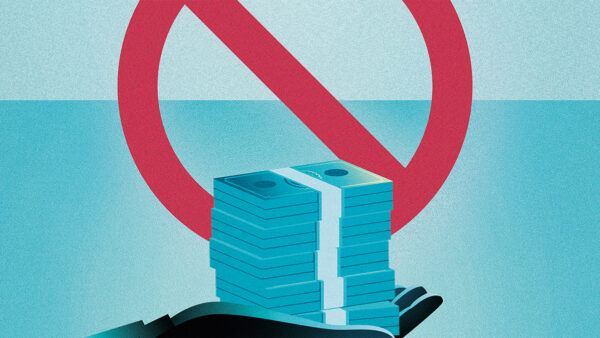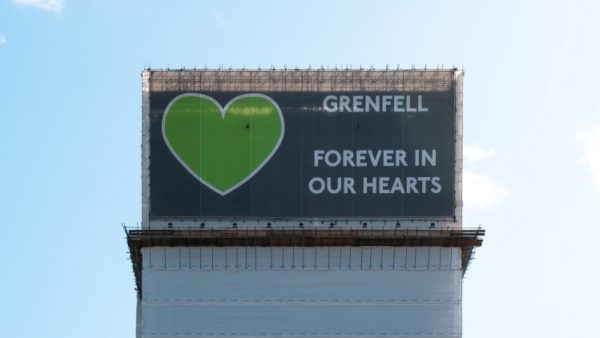
As mental health becomes more talked about than ever in construction, Laura McLellan discusses how and when workplace ‘banter’ crosses the line into bullying and harassment.
Nobody wants to ban ‘banter’ from construction sites or offices, which would lead to a stale atmosphere. However, employers must be clear when it crosses a line. To prevent a toxic workplace culture and the legal ramifications of allowing a culture of bullying and harassment to develop and thrive, employers need to take responsibility and have clear policies in place.
To what extent is banter taken too far in construction?
The latest Mental Health in the Construction Industry Survey (2021) found that, in the past year, one in five construction workers had been impacted by bullying in the workplace. A third of those workers buried the problem by going about their job as normal. The research found that 28% of employees said the bullying was labelled as banter. This number was significantly higher among younger people, with 50% of 21-24-year-olds and 43% of 25-34-year-olds reporting this experience.
These statistics illustrate the scale of the problem in the UK construction industry. Therefore, employers must be more aware of the signs of bullying and harassment in the workplace and create a culture that enables victims to feel safe about speaking to management about it. More than half of those who had experienced bullying said they wanted more confidentiality for any issues raised with management.
So what does taking banter “too far” mean?
Banter (noun) is defined as ‘the playful and friendly exchange of teasing remarks’ or to ‘exchange remarks in a good-humoured teasing way’ (verb), but what defines good-humoured and when does so-called friendly banter cross the line and become workplace bullying?
Banter in the workplace can be seen as a grey area which is why it can be difficult to navigate in an industry like construction. However, some things are out of the question when it comes to being a subject of banter – these include anything related to race, gender, sexual orientation, disability and religious beliefs. Although it is every individual’s moral duty to know what constitutes bullying, harassment and discrimination – and to some, it may seem common sense – it is ultimately an employer’s responsibility to ensure employees understand what is ‘too far’.
The 2021 Mental Health in the Construction Industry Survey revealed that non-UK citizens are more likely to be subjected to bullying, with 31% affected against 18% of UK citizens. This in itself demonstrates the level of discrimination in the UK construction industry, despite it being an industry that has employed a large number of workers from outside the UK.
Who is responsible, the employees or the employer?
Both. If an employee complains about discrimination of any kind, it is the employer that will have to investigate it and discipline the responsible employee. But the employer can also be in the firing line at an Employment Tribunal, even if they were unaware the discrimination had even occurred. So, to protect workers and the business’s reputation, employers must ensure they create a culture that does not enable banter to cross the realms into bullying or discrimination in the first place.
“The employer must not judge whether the perpetrator thought it was offensive, or whether they themselves would find it offensive. Discrimination is subjective – it is how the victim perceives it.”
It is important that employers have a clear anti-bullying and harassment policy that they communicate to the entire workforce. They should have this as a standard, but what they do with it is more important. Do they regularly bring it to their employees’ attention? Do they provide supplementary training? These are two things which, as a minimum, a tribunal would expect to see if it is to ‘excuse’ the employer from the discrimination.
If banter is perceived as discrimination, what action should the employer take?
The employer will need to conduct a thorough, independent investigation into the allegations. But if they are found to have occurred, dismissal will often be the appropriate disciplinary sanction if the discriminatory comments are allegedly ‘banter’ – otherwise, the employer will be seen as tolerating discrimination.
Five things employers need to remember when responding appropriately to bullying and harassment claims:
- Once a complaint is brought to the employer’s attention, they must act quickly to investigate it and discipline any perpetrators.
- The employer must not judge whether the perpetrator thought it was offensive, or whether they themselves would find it offensive. Discrimination is subjective – it is how the victim perceives it.
- It is irrelevant if the victim appeared to be joining in – if the employee in question felt victimised, harassed, bullied or discriminated against it cannot be brushed off as friendly banter.
- If a third party raises a complaint that they witnessed discrimination rather than the victim themselves, the employer should still investigate under their duty of care to their employees.
- Anyone who raises a complaint must not face any ‘detriment’ for doing so – they must not be in any way treated differently because they complained. This fear in itself often prevents employees from speaking up when they are being bullied at work and, in turn, contributes to the continuation of a toxic culture.
Employers in the construction industry need to have the correct procedures to ensure bullying and harassment are not tolerated. They must also have an open-door policy for any employee wishing to talk to them about these issues so that there is a culture of honesty, confidentially and trust.
Employees have an increasingly better understanding of their legal rights in the workplace and employers must take every allegation seriously, despite it often being brushed off as ‘banter’ by colleagues.
Laura McLellan is a director in the Employment Team at law firm Walker Morris.
Comments
Comments are closed.












Banter has always been part of people’s social development. Sadly people have no character building now either in education or their social lives and come into the world without the social skills they need to survive ‘banter’. Many a person has been asked to go fetch a ‘long wait’ from a store, or go get some ‘tartan paint’. It’s never harmed anyone. Sorry to say but banter doesn’t go too far, and that’s the real point. There is a major difference between banter and bullying/harassment. The difference is obvious. Too many snowflakes in the world these days, and all of them in constant need of reassurance and having their egos massaged.
This is a good heads up and timely after Christmas celebrations. Work related Christmas functions can present a problem with banter, where perhaps some people drink too much and restraint and common sense fade as a result. This would be good as toolbox talk in early December, just to remind people and managers of their wider responsibilities.
I agree with ‘Joe Bloggs’ completely. ‘Growing up’ is now called ‘mental health’, and it is no surprise that those apparently suffering are significantly younger who have been reared in the current ‘risk averse’ overly protected society which is responsible for the ‘snowflake’ generations. Were they never told that ‘sticks and stones can break my bones, but words can never hurt me’?!
There are a large number of arrogant self centred people in the world who feel more important by running down those in their social or work environment. I guess the likes of Mr Blogs!!! Has never had to talk someone back from the brink because the banter has robbed their self esteem. Please think before you open your mouth. Like all disabilities mental health issues are not always visible.
Comments here and elsewhere demonstrate the attitudes of too many in ‘the industry’ contributing to the continuing perceptions of us as chancers, cowboys, dinosaurs, misogynists, racists, get-rich-quick, profiteers, corner-cutters. I look forward to an industry with more ‘snowflakes’ who rate ‘elf-an-safety’, honesty, integrity, respect, wellbeing and mental health highly, and stand up for those values and professional attitudes and practices which CIOB purports to support.
After 50 years in the Construction Industry I can honestly say that I have only had the feeling of a bully overstepping the mark on one or two occasions. I think any balanced person knows when banter becomes bullying. Sarcasm is often the norm in the Industry- this is not bullying and the snowflakes must learn the difference!! Learn the difference and enjoy your life ! It is a great Industry and work hard and move forward!!